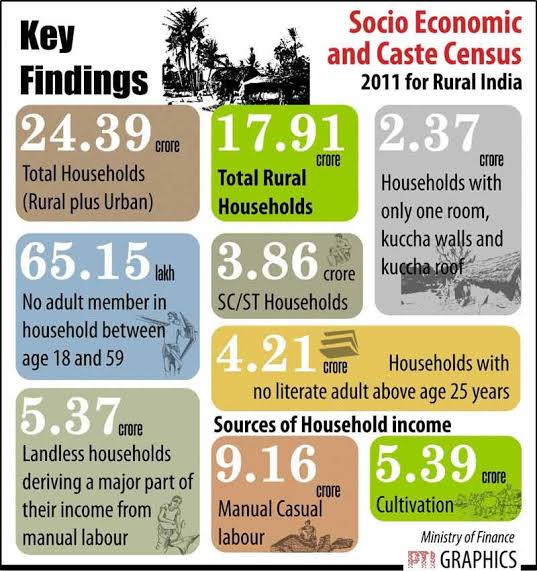The importance of caste data
- Last month, the Supreme Court upheld the 27% quota for Other Backward Classes (OBC) in the All-India Quota seats for the National Eligibility-cum-Entrance Test.
- SC reiterated that reservations for backward classes is not an exception but an extension of the principle of equality under Article 15(1) of the Constitution.
- Data will help us determine who needs and does not need affirmative action and the effectiveness of such a measure.
Context
- The judgment highlighted how open competitive exams give the illusion of providing equal opportunity in ignorance of the widespread inequalities in educational facilities.
- The Court pointed out how such disparities are not limited to the issue of access to good education or financial constraints alone.
- Also to the psychological and social effects of inherited cultural capital which ensures the unconscious training of upper-caste children for high-grade performance.
- The Constituent Assembly held a similar philosophy while introducing constitutional provisions which enable the government to make special provisions for the uplift of the “lower castes”.
Some prevalent facts
- Despite the underlying good intentions, positive discrimination has been a controversial topic.
- Many oppose affirmative actions like reservation and believe that such provisions only perpetuate caste differences.
- "Castelessness" is a privilege that only the upper caste can afford because their caste privilege has already translated into social, political and economic capital.
- Individuals who belong to the lower castes must retain their caste identity in order to claim the benefits of measures such as reservation, which recognise historic harm.
Promises without justifiable data
- Political parties often promise reservation for communities on being brought to power without any credible data collection exercises to justify the decision.
- Some time ago, the Supreme Court struck down the reservation for the Maratha community in Maharashtra in excess of 50%(limit set in the Indra Sawhney case).
- It clarifies that when more people aspire for backwardness instead of forwardness, the country itself stagnates which situation is not in accord with constitutional objectives.
Need for a credible exercise
- The faith of our citizens cannot be restored until credible exercises of data collection are undertaken regarding caste.
- The data concerning the Scheduled Castes and Scheduled Tribes have been included in the Census, but there is no similar data on OBCs.
- The Socio-Economic and Caste Census (SECC) conducted in 2011 has been called “faulty” and “unreliable”.
- Even the Mandal Commission’s recommendations were criticised as being based merely on the “personal knowledge” of the members of the commission and sample surveys.
- In the Indra Sawhney case, the Supreme Court held that the States must conclude the “backwardness” of a particular class of people only after proper assessment and objective evaluation and such a conclusion must be subject to periodic review by a permanent body of experts.
- The National Commission for Backward Classes Act, 1993, provides under Section 11 that the Central government may every 10 years revise lists with a view to exclude those classes which have ceased to be backward and include new backward classes.
- Many calls were made for the inclusion of caste data (including OBCs) in the 2021 Census.
- The government took the stand stating 2011 SECC was “flawed” and is “not usable”.
- Since the Census could not be undertaken in 2021 due to the pandemic, it is set to take place in 2022.
Conclusion
- Caste data will enable independent research not only into the question of who does and does not need affirmative action but also into the effectiveness of this measure.
- As long as reservation results from violent agitations and political pressures, attempts at any affirmative action will always be under the shadow of caste and class politics.
- Impartial data and subsequent research might save the bona fide attempts of the uplift of the most backward classes from the shadow of caste and class politics.
- It is not reservation that creates the current divide in our society but the misuse or the perceived misuse of reservation.


